Is Rent Control a Good Solution to High Rents?
There is a rental crisis in Australia. Struggling families are finding it harder and harder to put a roof over their head. A new report commissioned by QCOSS (the Queensland Council of Social Services) revealed there are about 300,000 Queenslanders experiencing housing insecurity, as soaring rental prices disproportionately affect lower-income families and inadequate supply of social housing leaves many languishing.
REPORT: A blueprint to tackle Queensland’s housing crisis
https://www.qcoss.org.au/publication/report-a-blueprint-to-tackle-queenslands-housing-crisis/
The report shows that median house prices have significantly increased in recent years, with Brisbane houses, almost tripling in price over a decade. Advertised rents have gone up dramatically in the last five years, at much higher rates than the CPI (the consumer price index, a measure of inflation). Rental vacancy rates have plummeted across the state with many areas running close to or substantially below 1%.
A couple of days ago, Premier Annastacia Palaszczuk responded revealing the state government is “very seriously” considering introducing a price cap on private rentals. This created an immediate backlash, with several economists saying a rent cap would be a disaster. The Premier stated, “This is a big issue for families. They are constantly being faced with huge increases in rent and this is putting a lot of pressure on families. We’re looking very seriously at how a rental cap can be put in place.” Obviously, if you force owners to reduce their rents, this could easily result in them selling up creating more rental shortages.
Deputy Premier Steven Miles fronted the media 24 hours after Premier Palaszczuk’s rental cap announcement and stated that the state government is unlikely to implement a “rent freeze”, but said there needs to be a “conversation” on whether a limit should be placed on the size and frequency of rent increases. He also accepted that for the free market to work, investors need to see a return on their investment. He said, “In an environment where inflation is very high, where property prices have increased and where interest rates are increasing, investors will need to see an increased return. But whether there should be limits placed on that increase, or whether there should be limits on how often and how they can be increased, they are all the sorts of things we want to discuss.”
Brendan Coates, an economist from the Grattan Institute, said interfering in the market by putting a cap on rents was bad policy and would discourage investment in rental housing and reduce supply. He said, “You could potentially make things better in the short term for existing renters, but the very act of making it easy for existing renters will make it worse for those that need housing. A better policy in our view would be boosting the incomes of those struggling to keep a roof over their heads, by raising rent assistance by at least 40%. That should be the No. 1 priority right now.”
Avi Khan, principal at Ray White Marsden, warns that rental caps will result in at least some landlords selling up. He said, “And then when those properties are sold, where do the renters go? If we go down this road, it will be a bloodbath.”
QCOSS chief executive Aimee McVeigh welcomed the proposal to bring in rent caps, but insisted the top priority to alleviate housing pressures was to build more social and affordable housing.
Independent economist Saul Eslake, who has previously advocated against tax privileges for property investors, said a rental cap “is sort of giving up on the most effective solutions”. He said, “Arbitrary limits on whether rents can be increased at all and if so, by how much, are a bad thing. They will discourage investment in rental housing. In other words, they will adversely impact the supply of housing. Conceptually the right way to approach it is to increase the supply of rental housing.” Mr Eslake also noted the risk of triggering a slippery slope for other areas of the economy, as people could legitimately ask why they aren’t capping power prices or grocery costs, or anything else.
Opposition Treasury spokesman David Janetzki said the “absolute focus” of any government was to boost housing supply in the short, medium and long term, and slammed the rental cap proposal as a “shortsighted political announcement” and a “thought-bubble”.
Greens MP Amy MacMahon, unsurprisingly welcomed the government’s indication on rent caps, but said that rent controls that genuinely help fix the housing crisis need to be in place. The Greens’ have previously proposed to cap rent increases at 2% every two years.
So the Greens and Labor, or at least the Labor Premier, believe that rental controls and caps are the way to go to fix the rental crisis, but what do you think? I think there’s only two options: We either need less people, or we need more houses.
MUSIC
Allégro by Emmit Fenn
-
 12:03
12:03
Desert Edge Legal
1 month agoIs Nationwide Rent Control Coming?
201 -
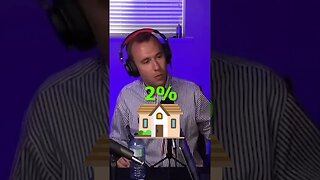 0:59
0:59
The Tom Storey Show
10 months agoWhy Rent Control Hurts Renters and Housing Affordability #shorts
21 -
 4:33
4:33
Selling Boston & the Burbs by Jeffrey Chubb
1 year ago $0.07 earnedRent Control Is USELESS?! (The Boston Rent Control Proposal)
621 -
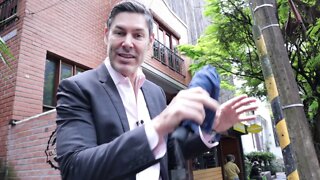 11:52
11:52
George Gammon
4 years agoHow Rent Control Destroys A City AND Hurts Renters!
5 -
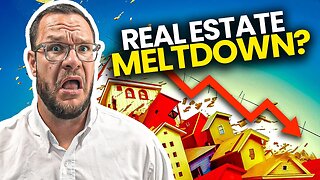 4:45
4:45
10 Minute Stock Trader
7 months ago $0.02 earnedHousing Crisis 2023: Why Can't You Afford Rent?
67 -
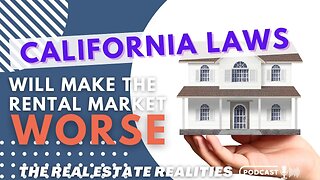 43:07
43:07
Real Estate Realities With The RebelBroker!
7 months ago2023 California Rent Control Laws Will Ruin The Rental Market
15 -
 6:41
6:41
Heresy Financial
1 year agoThe Real Housing Crisis is in Renting
1781 -
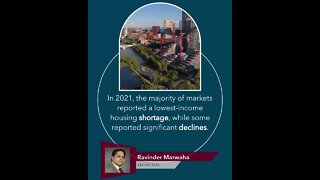 1:10
1:10
RavinHomes
2 years agoLOWER - INCOME RENTERS STILL LACK HOUSING OPTIONS
33 -
 0:49
0:49
Homes In Orlando For Sale
1 year agoEvictions Skyrocket, Renting Becoming Unaffordable
28 -
 10:50
10:50
Investor Financing Podcast
4 months agoInsights And Future Trends For Maximizing Profits In Short-term Rentals With Eric Lawson
40